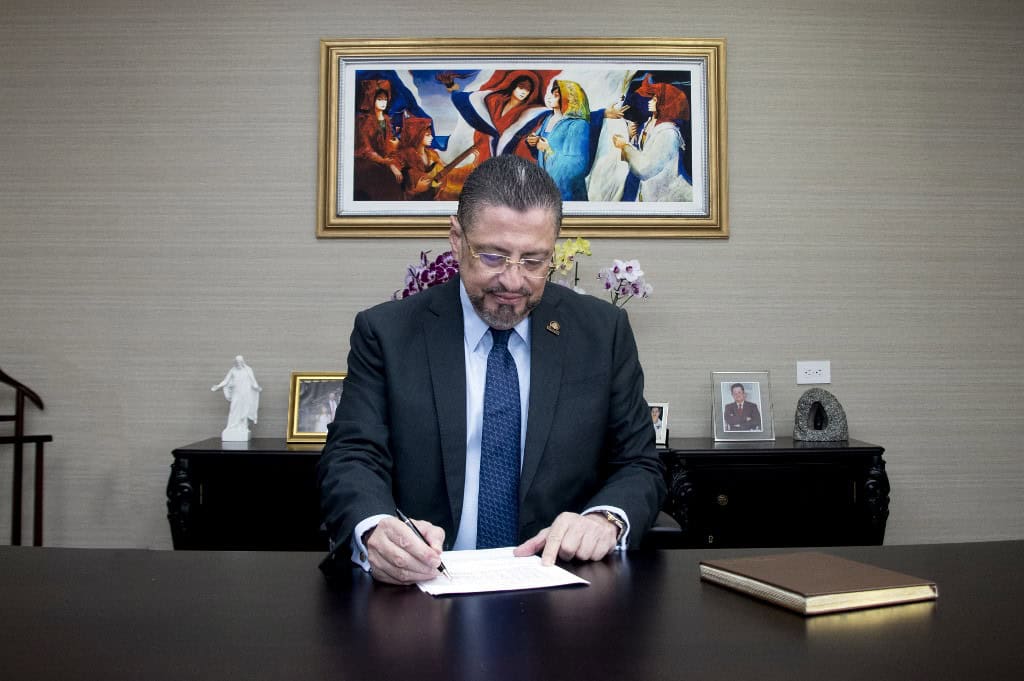Costa Rica’s Supreme Court of Justice on Tuesday asked Congress — for the first time in the history of this country with a well-established democratic tradition — to lift the immunity of President Rodrigo Chaves, who is accused of corruption-related crimes. In the midst of a clash between branches of government, the Full Court voted with 15 in favor and seven against to “submit to the Legislative Assembly the request to lift the immunity” of the president, according to a statement from the judiciary.
Chaves, a 64-year-old conservative economist, was accused by Attorney General Carlo Díaz — with whom he has an open conflict — of forcing a communications services company contracted by the Presidency to give $32,000 to his friend and former image advisor, Federico Cruz.
Díaz accuses the president of the crime of extortion, which carries a penalty of two to eight years in prison for public officials who force or induce someone “to give or promise, improperly, for themselves or a third party, a good or financial benefit,” according to the Prosecutor’s Office.
“The final decision lies with” the legislators, the statement said. The Court also requested the lifting of immunity for the Minister of Culture, Jorge Rodríguez, on the same charges.
According to investigators, the hiring of the company during Chaves’ term (2022–2026) was carried out using funds from the Central American Bank for Economic Integration (CABEI) through a “seemingly” improper procedure. The president has not yet responded publicly, while Rodríguez said he has a “clear conscience and a clean record.”
A Friend of Bukele
Judicial and electoral authorities are also conducting other investigations into the president for alleged political partisanship. In his press conferences and official events, Chaves often discredits opposition parties, judges, prosecutors, and legislators, and frequently attacks critical media outlets.
Chaves, a former World Bank official, cannot seek consecutive re-election due to a constitutional ban, but close aides do not rule out that he may run for a seat in the Legislative Assembly. His tough-talking populist profile has helped him in the polls. Chaves has said he hopes his party will win a qualified majority in Congress in the February 2026 presidential and legislative elections, allowing him to push through a series of national reforms.
He is an admirer of Salvadoran President Nayib Bukele, and several months ago sent his Minister of Justice, Gerald Campos, to visit El Salvador’s maximum-security “mega prison,” whose harsh detention conditions have been criticized by human rights groups.






